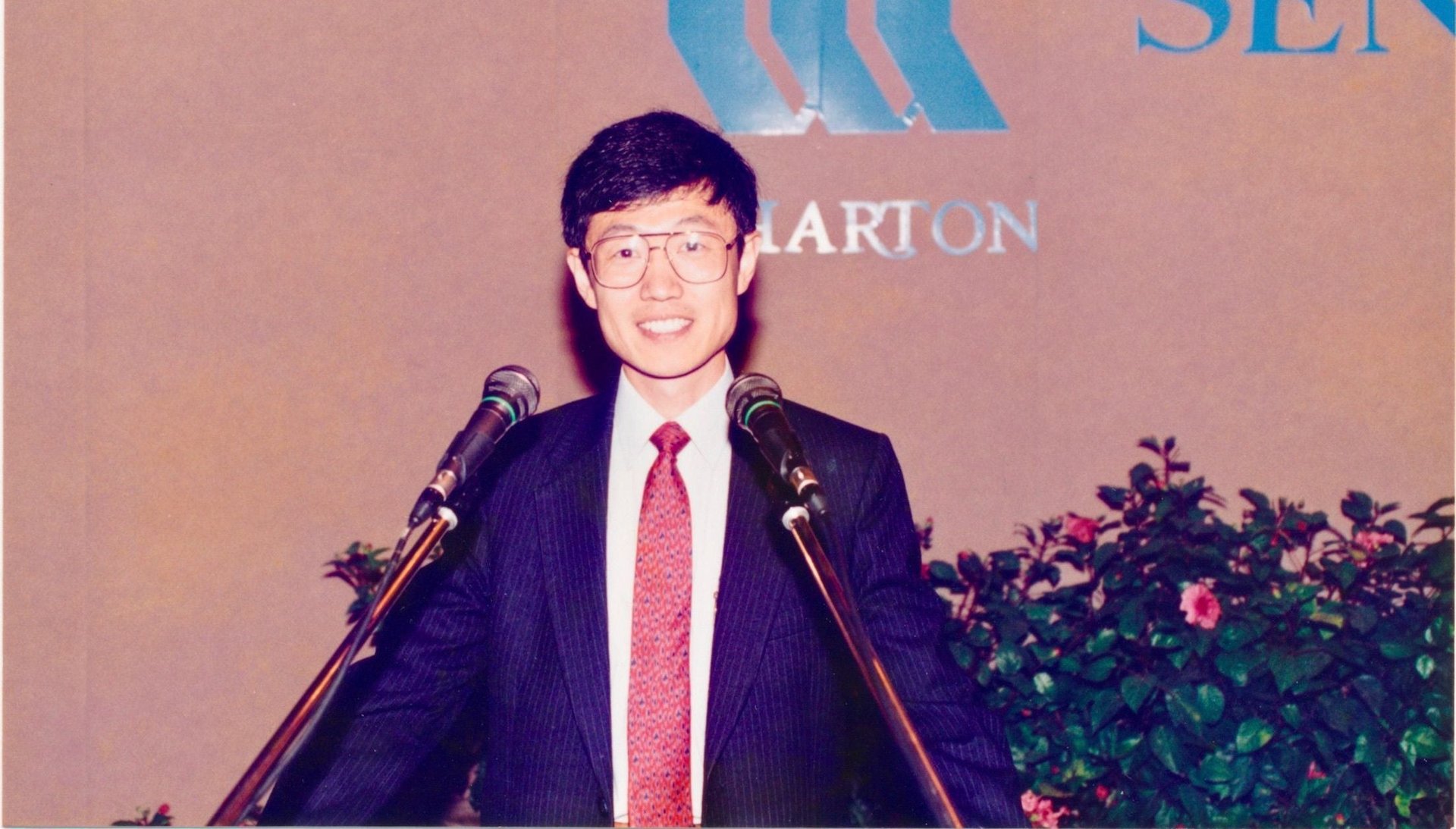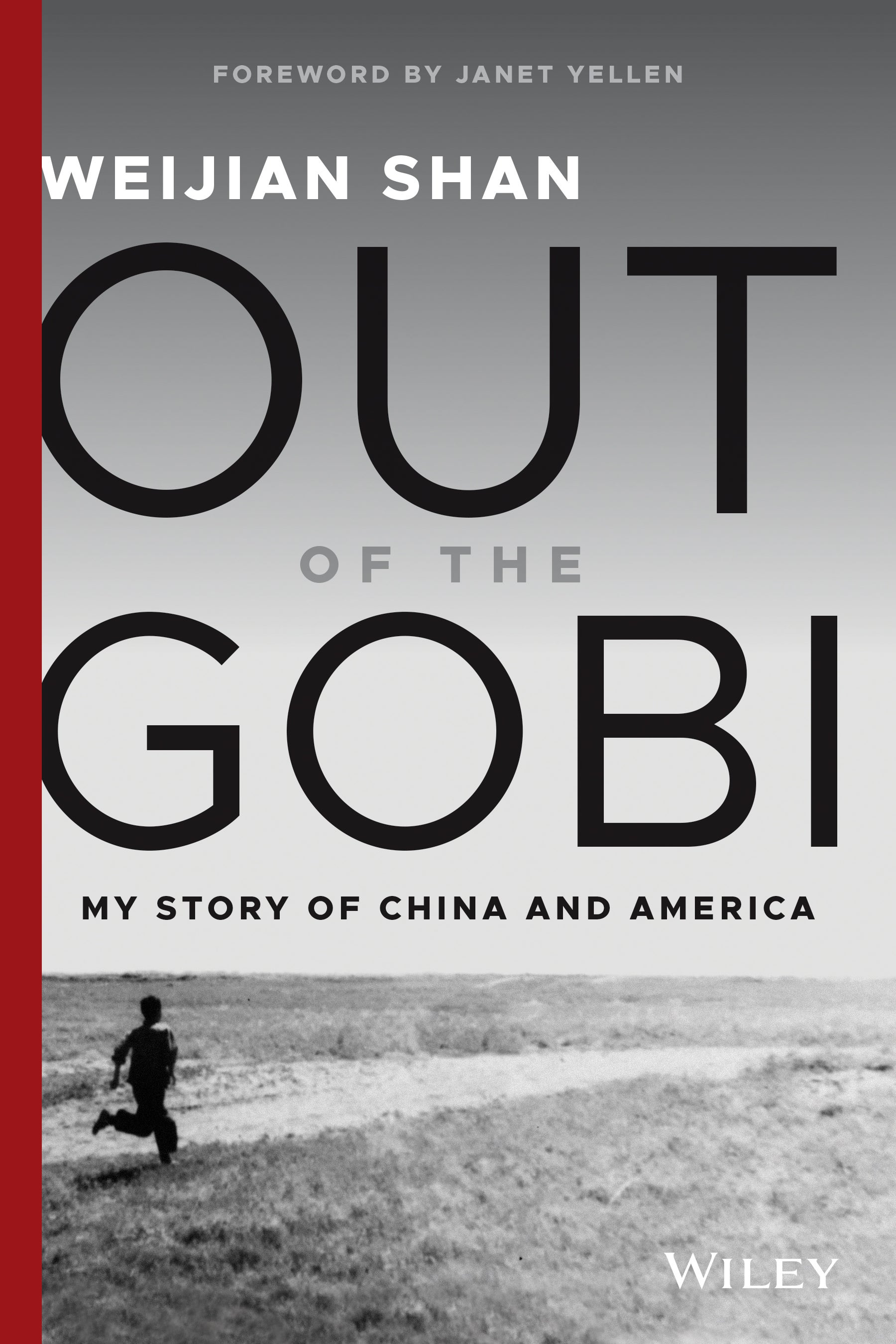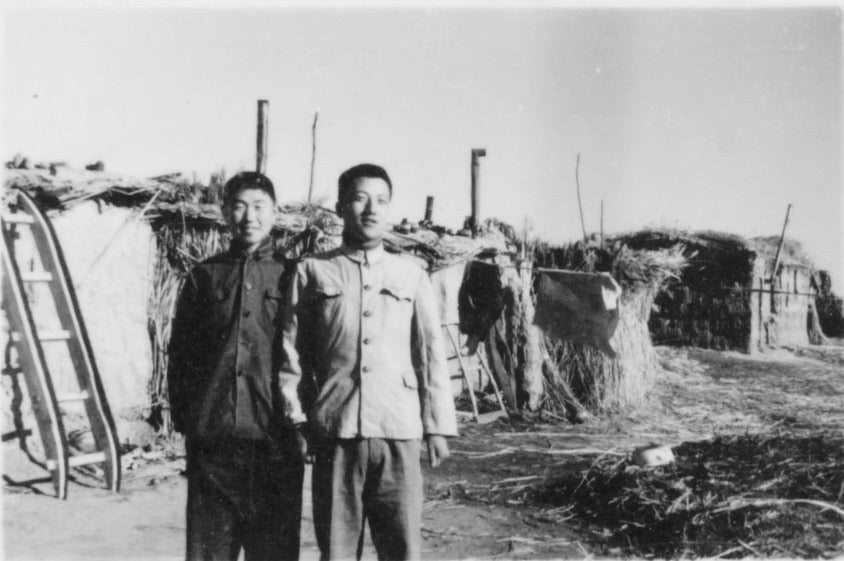A top Asia dealmaker retraces a life shaped by 40 years of US-China relations
It was January 1979, shortly after China and the US established diplomatic relations, and just before vice premier Deng Xiaoping visited the US at the invitation of president Jimmy Carter. Shan Weijian, 25, had just graduated from a Beijing university following six years of manual labor on a farm in the Gobi Desert during the Cultural Revolution. He was earning about $32 a month as a faculty member at the Beijing Institute of Foreign Trade.


It was January 1979, shortly after China and the US established diplomatic relations, and just before vice premier Deng Xiaoping visited the US at the invitation of president Jimmy Carter. Shan Weijian, 25, had just graduated from a Beijing university following six years of manual labor on a farm in the Gobi Desert during the Cultural Revolution. He was earning about $32 a month as a faculty member at the Beijing Institute of Foreign Trade.

The detente between the two countries changed the trajectory of Shan’s life forever, paving the way for him to study in the US, and later work at the World Bank before eventually becoming an assistant professor of economics at the Wharton School at the University of Pennsylvania. After leaving academia, Shan joined the finance industry in 1993 and moved to Hong Kong with JP Morgan, and today is the chairman of PAG Asia Capital, a private-equity firm with assets under management of $30 billion.
Shan’s autobiography Out of the Gobi: My Story of China and America, which is being published by Wiley this month, is serendipitously timed not only with the 40th anniversary of the US and China normalizing ties, but also the December celebration of 40 years since Deng announced his economic reforms that opened China up to the world.
“There’s no question that both countries have vastly benefited from the relationship since 1972, when Richard Nixon first visited China,” he said in an interview in Hong Kong. “The opening up of China narrowed the ideological gap between the two countries.”
Shan began writing the book 27 years ago while at Wharton, but returned to the project with renewed zeal in 2017. Out of the Gobi, which ends with his return to Asia in the 1990s, arrives during a particularly troubling time for US-China relations—a deterioration that deeply concerns Shan. “In retrospect, the book is timely,” he said.
In an August opinion piece published in the Wall Street Journal (paywall), he reasoned that the West should be supporting China’s reformists, rather than taking actions like imposing tariffs against China, which plays into the hands of ideological hard-liners opposed to further liberalization. In a more recent New York Times op-ed (paywall), published during the latest round of trade talks between the two countries, he once again argues that the US needs to reach a deal with China that allows it to further open up its economy.

Shan was one of the first cohort of Chinese students allowed to study in the US after the Cultural Revolution. He began his degree at the University of San Francisco (USF) in 1980, with financial help from the Asia Society. He had the option of studying at Stanford, but neither he nor the president of his Beijing university had heard of it. Berkeley was another option, but they suspected it was an inferior “branch school” of a mythical University of California proper. On the other hand, San Francisco, known as “Old Gold Mountain” to Chinese at the time, was a well-known place. In his first days in the city, he was treated to unexpectedly good Chinese food, surprised by the practice of taking food home in doggy bags, and made friends with Taiwanese students.
Today, amid the tensions between the US and China, education is increasingly becoming a battleground, potentially affecting hundreds of thousands of students hoping to study abroad in America. Amid growing fears of espionage, for example, the Trump administration has repeatedly threatened to restrict visas for Chinese students, while the White House already last year shortened the length of visas for Chinese students enrolling in programs such as robotics and aviation.
Shan believes the impact of the new hostility toward Chinese students could harm America itself. “Any policy that restricts Chinese students is very short-sighted, and it’s actually self-inflicted pain… restricting the import of talent is certainly not good for the country,” said Shan said. “Chinese students bring back [home] new thinking, like a market-oriented approach, an open mind.” Shan’s own two children are both in the US.
This year also represents another important anniversary in Shan’s life trajectory as he marks 50 years since he joined hundreds of other young men and women, full of revolutionary zeal, to work on a farm in Inner Mongolia at age 15, becoming part of a “lost generation” of Chinese who were deprived of education for a decade.
In his book, Shan recounts how he surreptitiously tried to learn English during the Cultural Revolution by secretly listening to shortwave radio stations like the BBC and Voice of America, an activity that could have landed him in severe trouble at that time. (Later, in a more permissive environment, he gorged on writings that included everything from Reader’s Digests to An Inspector Calls, though he particularly enjoyed The Gadfly, a novel by an Irish writer set in 1840s Italy that was wildly successful in the Soviet Union.)
His book, he said, is an occasion for people to reflect on the history of that period and whether “China has changed so much that the past experiences will never be repeated,” adding that that some of the conditions that allowed that destructive decade to unfold to take place “may still not have been rooted out.”
Here, Shan demonstrates a kind of frankness that is increasingly hard to find among Chinese people in today’s political climate, where under Xi Jinping dissent and activism have faced a severe crackdown.
What China needs, he said, is “the rule of law, not rule by law,” which he said is the “best safeguard against a repeat of… the Cultural Revolution.” The comment echoes a chapter from Shan’s time at USF, when, in a law class, he was confounded by the sanctity of contracts in the US. “By contrast, the culture in China at the time was definitely not contractually based,” he wrote in his book. “First, there was almost no commercial activity, and second, the Party settled all disputes.”
He is a firm believer that China should engage in more economic reforms, such as stronger protection of intellectual property. Though he shies away from getting into too much detail, he is emphatic that political reform has “severely lacked in China,” and that the leadership should be more open to dissent but caveats that rather than full-blown liberal democracy, perhaps a model that permits more freedom for enterprise with a smaller role for government, like that of Singapore, might be suitable.
Most of PAG’s money is invested in China, and the country’s consumption power continues to underpin many of the firm’s investment decisions. But at a time when much of the world is growing increasingly worried over China’s growing assertiveness, it may come as a surprise that Shan himself perceives an underlying anxiety. “What I see in China is that the government is not necessarily more confident in itself. In fact, to a large extent, it seems that they feel more insecure,” he explained, citing the extreme censorship as a symptom of that. “Allowing more freedom of speech is a reflection of your confidence. It can only help you.”
Even the Belt and Road plan, through which China is financing the development of infrastructure globally, often by its own companies, is less a “grand plan” than one borne out of deeply rooted problems such as overcapacity in sectors such as steel and cement production, he said.
Shan has described himself as an obsessive deal-maker (paywall) with few pursuits outside of his day job. Even in his downtime, he prefers to read nonfiction only, especially books about history. In the field of US-China relations, he finds the writings of Nixon’s national security adviser Henry Kissinger (whose secret diplomacy made formal ties between China and the US possible) “indispensable” for his perspective on China that he says “no one else has.”
In an introduction to Out of the Gobi, Janet Yellen—the former Federal Reserve chair who was also Shan’s faculty adviser at Berkeley, where he studied for his PhD—wrote that “Shan’s life provides a demonstration of what is possible when China and the United States come together, even by happenstance.”
Shan’s autobiography may well one day be read by generations to come for a unique perspective on a better time in US-China relations.